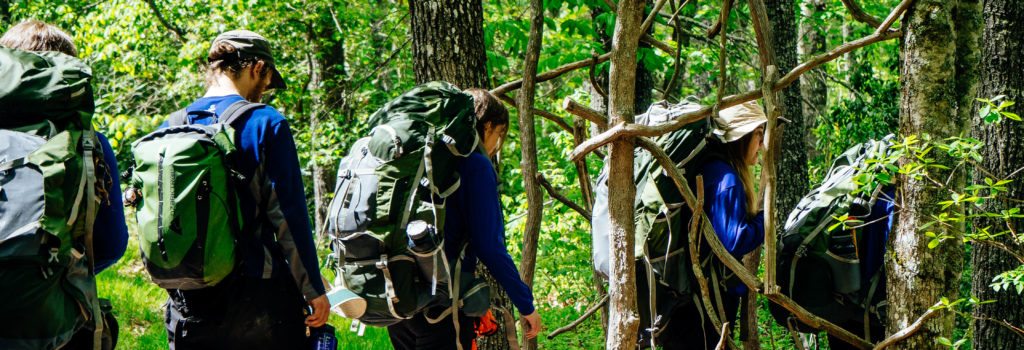
Your Backpack Scale and What It Says About You

You’ve purchased your backpack scale to weigh your pack for your thru-hike, but what to do with it? If you’re not bringing this pack on an airplane, aren’t you free to bring as much weight or as little weight as you want to?
Theoretically, yes. But, realistically, no.
Even if you’re not trying to do lightweight backpacking, the weight of your pack can very much influence the “nature” of your hike. Too much weight can really slow you down and cause you pain. Too little, may mean you’re not bringing enough of the essentials.
Since we are all built differently, what we can carry on our backs is different, too. You probably know a few small people who can carry A LOT of weight on their shoulders. Likewise, you may know a lot of bigger people who can’t carry nearly as much.
It’s all relative. So, what does your backpack scale say about you?

First, You Need a Backpack Scale
Before we even start analyzing what that backpack scale says about you, you first need to get one. Getting a backpack scale really isn’t a hassle. Many people use regular kitchen scales that are about $20, or a scale with a hanging hook on it. But, if you feel more comfortable getting a scale that’s meant for this job, then you can go with the REI Co-op Digital Luggage Scale or the Lewis N. Clark Balanzza Mini Digital Luggage Scale.
Just wait until the screen zeros out, attach it to your bag, lift, hold steady, and read the number! If you use a kitchen scale, just lay your bag flat.
There’s also a way to use a regular weight scale. Weigh yourself first, record the number, then put on your pack. Stand on the scale again, weigh yourself, then subtract the difference.
What Should I Be Looking For?
After your bag is already packed and it’s ready to be weighed, there are a few things you want to look for. Yes, weight is only a number. While weight is all relative, there are a few tricks to pack in a way that’s best conducive to your body.
Professionals suggest that packing about third, or even a quarter, of your body weight is ideal when you look at the scale. Of course, if you can pack less than that, you’ll be better off. So, aim for going for a fifth of your body weight, and you’ll hopefully be within a good weight.
You can also go by this chart, which is for a person who weights 175 lbs. If you weight significantly less or more than this weight, then scale accordingly.
Extremely Heavy: 50 lbs.+
Very Heavy: 45-49 lbs.+
Heavy: 40-44 lbs.+
Average: 35 to 39 lbs.+
Light: 30-34 lbs.+
Very Light: 25-29 lbs.+
Extremely Light: 20-24 lbs.+

How to Eliminate Excess Weight
So, you’ve weighed your pack and you’re not so thrilled about the number on your backpack scale. Your bag may feel okay now, but you’re pretty sure it will start to weigh you down after you carry it for a while.
Here are some ways to eliminate excess weight:
- Swap a large piece of gear for a lightweight version. (Perhaps your actual backpack or sleeping bag is too heavy.)
- Check on the weather again. Maybe you can do without the rain jacket.
- Check your food. Is there a way to re-stock along the way? Are you maybe bringing too much?
- Re-evaluate your clothing, accessories, and extra equipment. Are these all necessities or are some of these just comforts?
- Can you supplement a collection of materials for something that combines all of it into one? (Like, a multi-too or a handheld GPS instead of a compass, map, etc.)
You Do You
At the end of the day, the number on your backpack scale is, well, just a number. That being said, it determines a lot about you and how you prefer to hike. Obviously, a person who right away has a very light bag may have more experience hiking or may feel okay going out of their comfort zone and having less things. On the other hand, a person whose bag is undoubtedly heavy, may need to read up more on packing. Ultimately, it’s what YOU feel comfortable with. Regardless of what the backpack scale says, if that bag feels too heavy or too uncomfortable for you, then you’re not going to have an easy time of it once you get outdoors.
So, what does your backpack scale say about you?










